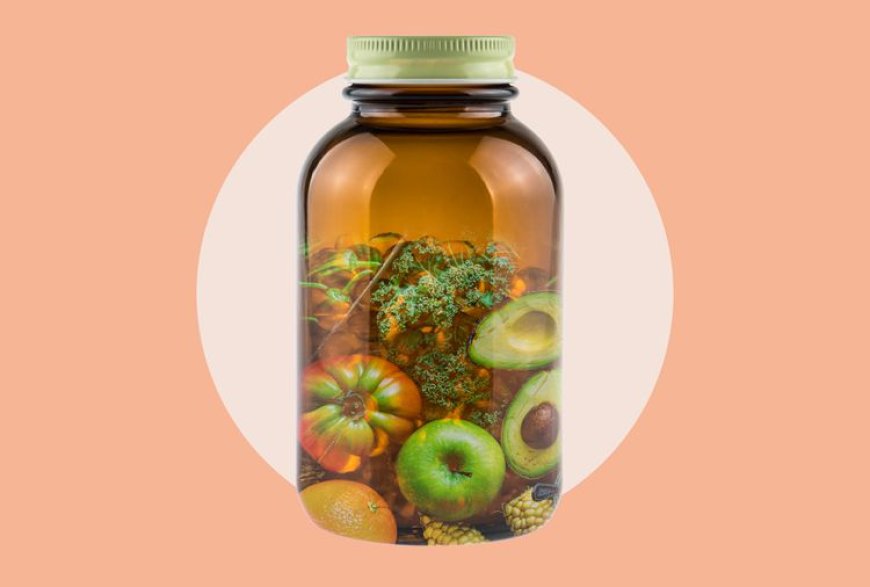The Worst Flu Season Since 2009 Is Here, and These Foods Could Help Boost Your Immune System
Nutrition experts say that getting enough vitamin C, zinc, and other key nutrients may help the body fight infection.

Scientific research into the relationship between nutrition and immune health has expanded significantly in recent years. As someone with a doctorate in the field, I’ve personally noticed a growing awareness, both within the scientific community and among my own family and friends. More often than ever, I receive emails or texts about newly published studies on how specific nutrients influence health outcomes, followed by the inevitable question: “What’s your take on this?”
One recent study that was sent my way was a 2024 review published in the “Journal of Health, Population and Nutrition.” The study, which sought to examine the impact of various macronutrient and micronutrient supplements on COVID-19 infections, is a scoping paper of 28 systematic reviews detailing how specific nutrients — particularly vitamin D, vitamin A, and zinc, as well as omega-3 fatty acids — may support immune responses during an infection.
With these findings in mind — plus the two dominant influenza strains contributing to the worst flu season since 2009, with more than 800,000 hospitalizations since October — maintaining a strong immune system is especially important this time of year. Certain nutrients play a crucial role in supporting immune function and incorporating them into daily meals can make a meaningful difference. From vitamin-rich foods to nutrient-dense beverages, there are many ways to nourish the body and help it stay resilient against infections.
Here’s everything you need to know.
Why is immune support particularly important in the winter?
Each winter, with the rise of cold and flu season, most of us look for ways to strengthen our immune health. And it’s not surprising: Adults, on average, get two to three colds per year while children typically get between six and 10 annually. Layer on that colds tend to last up to 10 days and up to two weeks for kids, and it’s no wonder many of us want to support our immune health.
Consumer research also reveals that immune health is a priority for Americans. Data from the 2024 Food & Health Survey from the International Food Information Council show that nearly 30% of adults in the United States are seeking immune function and immune health benefits from the food and beverages they eat. Of note, this is a significant increase from 2023 responses, which hovered around 1 in 4 adults reporting they sought immune benefits from what they ate and drank.
Which nutrients bolster immune health?
The 2024 study described above found that micronutrients such as vitamin A, vitamin D, and zinc, as well as macronutrients like omega-3 fatty acids, can be helpful for immunity. Qianzhi Jiang, PhD, RDN, LDN, Family Dietitian at The Nutrition Changer, cites research that shows how “some key nutrients such as selenium, vitamin C and vitamin E” are essential for immune support. Moreover, Lauren Twigge, RD and owner of Lauren Twigge Nutrition, underscores the importance of “electrolytes like calcium, potassium, sodium to help keep you hydrated, which is important to both strengthen your immune system and help you heal during times of illness”.. Together, compelling evidence indicates a variety of nutrients promote immune health.
How do these nutrients contribute to immune health?
- Vitamin A: Typically linked to vision and growth, vitamin A is also required for the formation and maintenance of immune cells as well as regulating inflammatory responses. Additionally, vitamin A deficiency is associated with increased susceptibility to infections and impaired immune responses.
- Vitamin C: Generally, the most well-known vitamin to support immune health, vitamin C serves as an antioxidant to help reduce oxidative stress during infection. Research suggests that regular consumption of vitamin C may decrease the length and severity of the common cold.
- Vitamin D: Normally associated with bone health, vitamin D has potent immune effects. For example, it decreases viral replication and inflammation while increasing immune cell activity and levels. Vitamin D deficiency has been linked to an elevated risk of various viral infections.
- Vitamin E: Functioning as an antioxidant, vitamin E protects the body from cellular damage but also helps boost the immune system against infection. Specifically, vitamin E can enhance antibody production and immune cell proliferation. It also decreases inflammation.
- Electrolytes: According to Twigge, electrolytes like calcium and potassium can help with hydration. Staying hydrated is especially important for strengthening the immune system and helping the body heal from an infection.
- Selenium: An essential antioxidant critical for thyroid function and metabolism, selenium supports immunity by improving immune cell function and reducing systemic inflammatory responses during an infection.
- Zinc: Associated with its role in cellular metabolism, zinc helps make DNA and protein and also has potent anti-viral and anti-inflammatory qualities. A zinc deficiency has been linked to impaired immune cell formation and activation, as well as increased levels of inflammation.
- Omega-3 Fatty Acids: These polyunsaturated fats form cell structures and signaling molecules that impact the cardiovascular, pulmonary, and endocrine systems. Omega-3s may have antimicrobial and antiviral activity and have been shown to decrease overt inflammation and increase immune cell function.
- Protein: Broadly, this macronutrient helps build and repair muscle and tissues. Additionally, Twigge expands, “It is also the building block of many different cells in our body, including immune cells that protect us against disease.”
Which foods and drinks contain immune-supporting nutrients?
“The best advice is to maintain an adequate and balanced diet,” Dr. Jiang says of immune health. Twigge also endorses eating a variety of fruits and vegetables and recommends protein-rich beverages and foods like milk, beef, and chicken, as well as nuts and seeds.
Below is a list of specific foods and the key nutrients each food contains that are essential for immune health:
- Animal-based protein like beef or chicken: Meat is a complete protein that is rich in iron and zinc.
- Beans and legumes: Beans and legumes provide protein and zinc, making them a great plant-based protein option.
- Berries: Berries like blackberries, raspberries, and strawberries are great for vitamin C.
- Brightly colored vegetables: Orange, red, and yellow vegetables tend to be high in both vitamin C and beta-carotene, a vitamin A precursor.
- Citrus: Citrus fruits like oranges or grapefruit are loaded with vitamin C and vitamin A.
- Dark leafy greens: Leafy green vegetables like spinach and kale contain vitamins A, C, and E.
- Eggs: Eggs deliver vitamin A, vitamin D, vitamin E, and selenium. They are also a rich source of protein.
- Milk: Milk provides nutrients like protein, vitamin A, vitamin D, and zinc. It’s also rich in electrolytes like potassium and calcium to support hydration.
- Nuts and seeds: Nuts and seeds are rich in vitamin E, selenium, protein, and omega-3s.
How can immune-boosting foods and beverages be added to meals and snacks?
According to the experts interviewed for this article, there are so many ways to add some immune-supporting foods to every meal and snack. Some of their favorites are outlined here.
- Twigge likes to start her day off with a “bowl of oatmeal made with milk, topped with berries, and a handful of nuts.” This provides nearly all the nutrients listed above.
- For a quick snack, Twigge suggests blending berries and milk. Twigge expands that the “antioxidant-rich berries and immune supporting nutrients like protein, vitamin D, and zinc that are in milk” are a great way to help immune health.
- A favorite lunch choice that Twigge mentions is a taco bowl loaded with brown rice, beans, bell peppers, cooked ground beef, and fresh pico de gallo. Twigge especially enjoys this meal because it is “rich in a variety of immune-supporting foods and nutrients.”
- For dinner, Dr. Jiang recommends “adding beans or legumes to soups and stews like chili, Shepherd’s pie, minestrone soup, or curries” for extra protein and zinc.






































